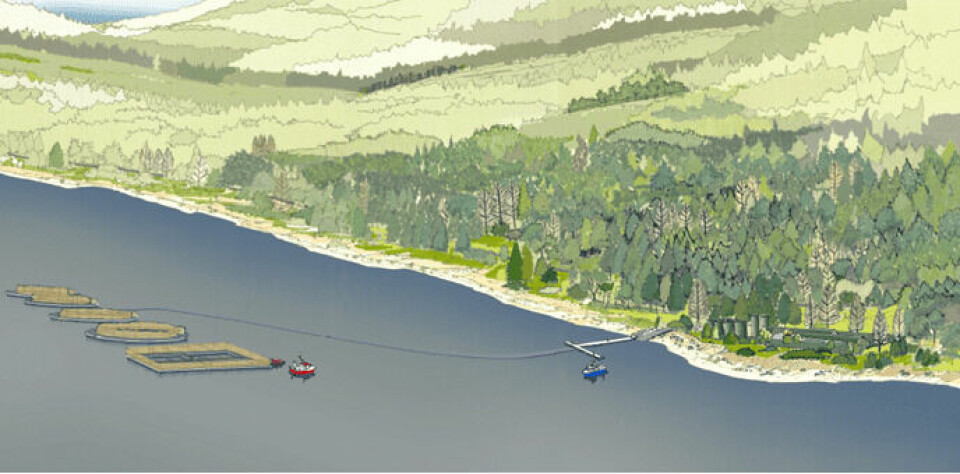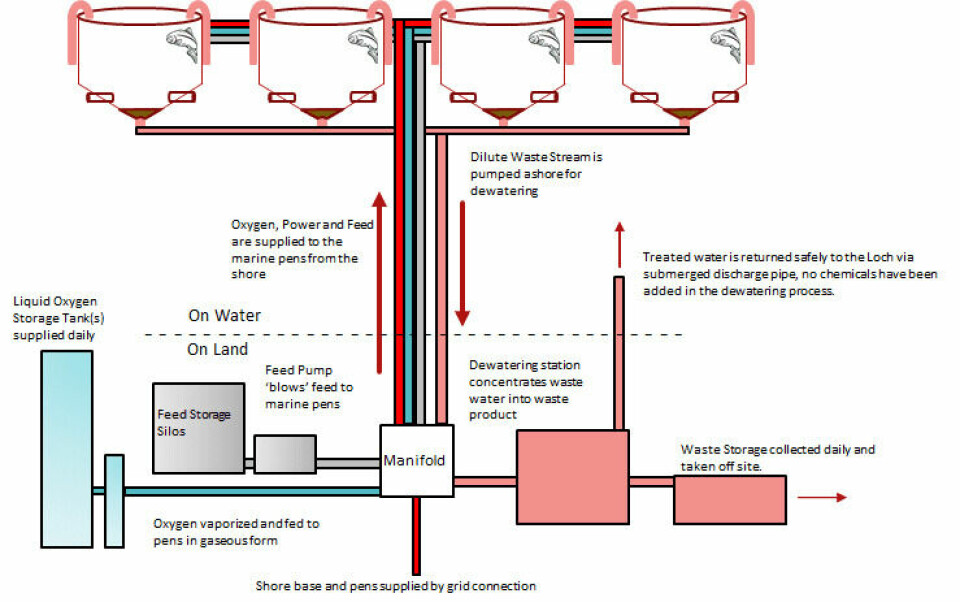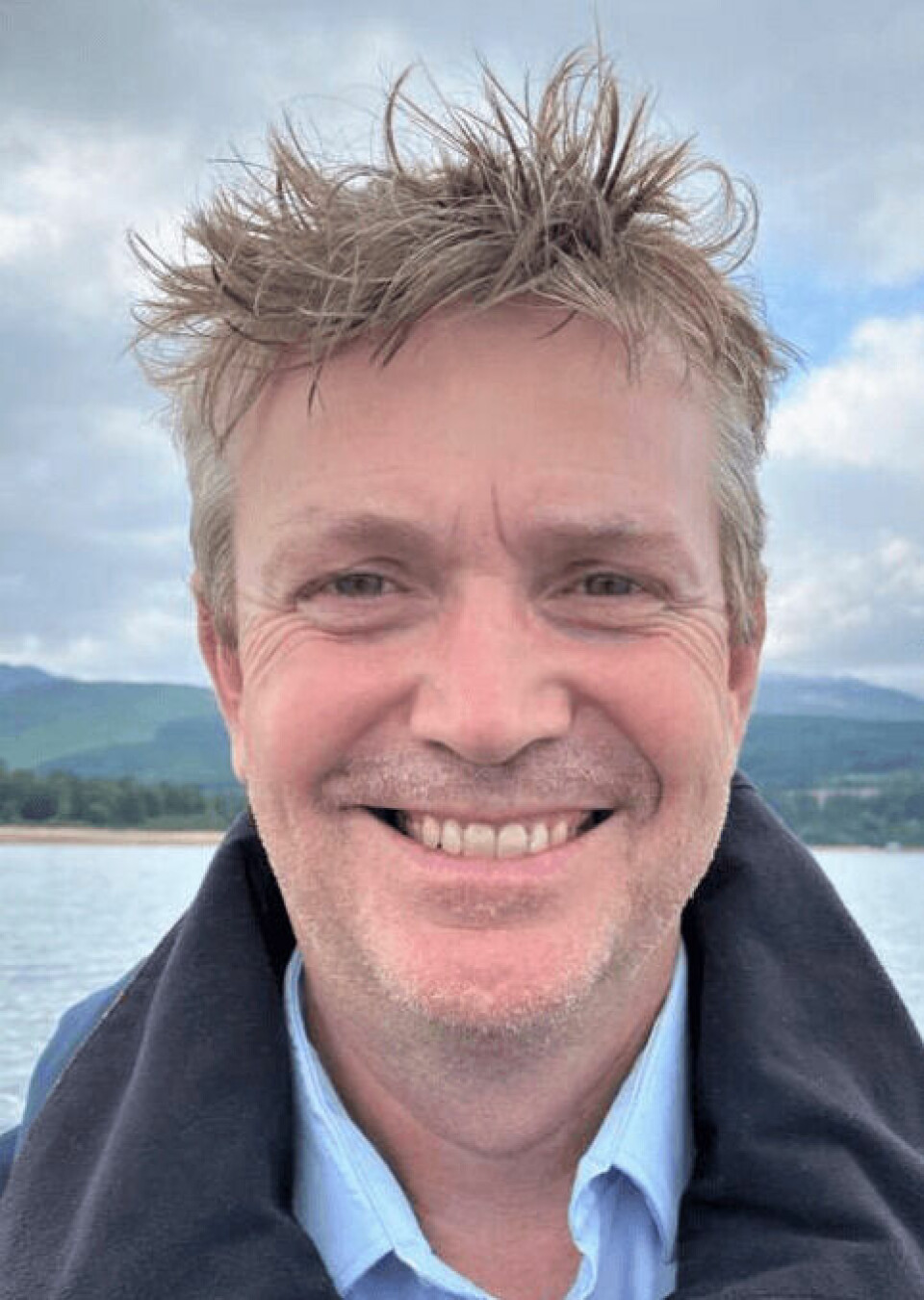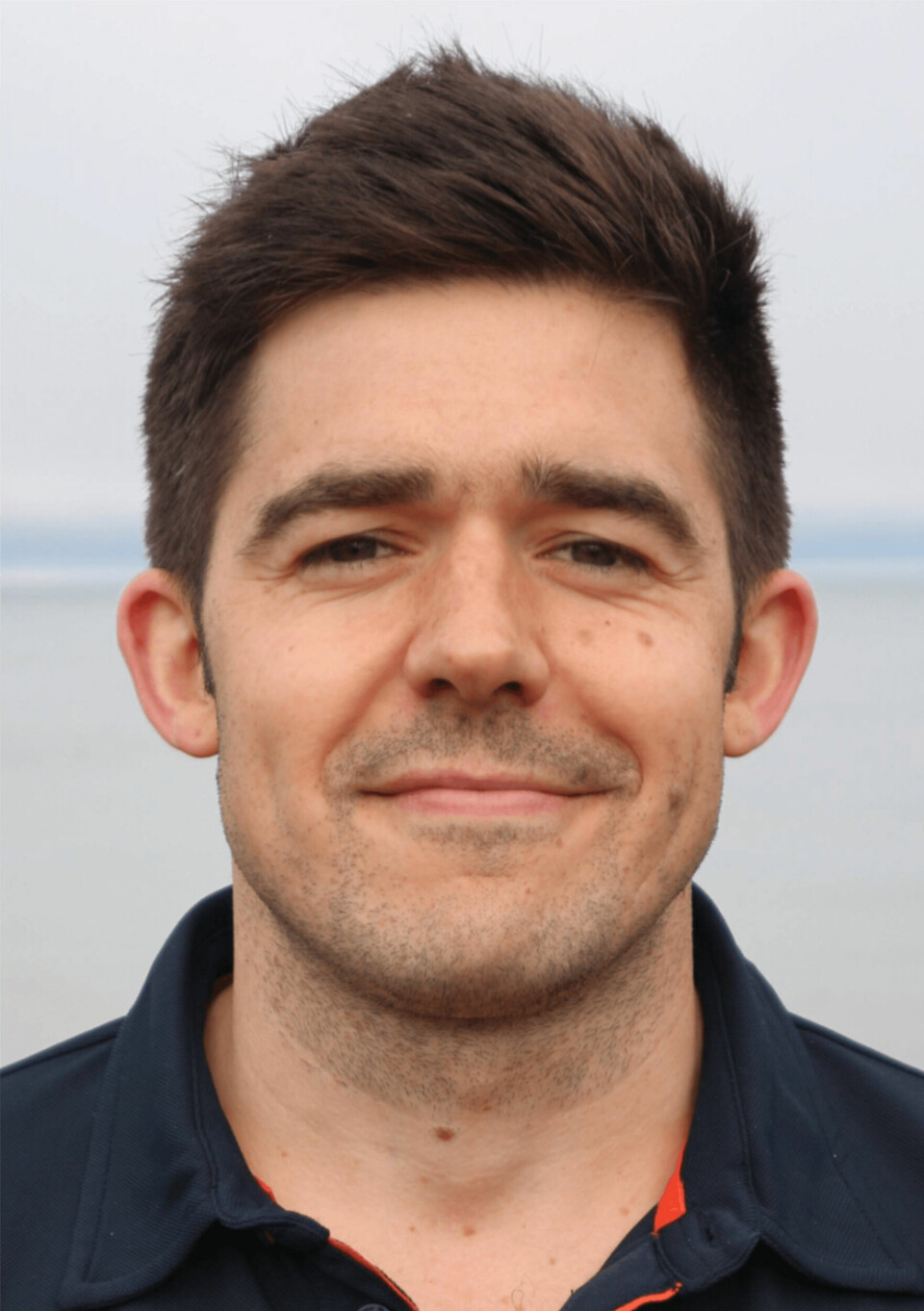
Planning bid made for Scotland’s first semi-closed salmon farm
Loch Long Salmon (LLS) has submitted a planning application to develop Scotland’s first semi-closed fish farm at Loch Long near Beinn Reithe in Argyll.
Semi-closed fish farm technology excludes sea lice, catches most of the organic waste, and can improve the health and welfare of the farmed stock.
While the Loch Long site would not be suitable or economical for conventional open net aquaculture due to its low current, it is ideal for Scotland’s first semi-closed farm due to its sheltered location, deep water, geographical isolation from other salmon farms, and proximity to a suitable shore base location, LLS said in a press release today.

3,452 tonnes of biomass
The planning application for the farm was submitted to the Loch Lomond and the Trossachs National Park Planning Authority last Friday, October 8. It will now be assessed by the Authority ahead of formal public notification and the official consultation process.
LLS has already applied to the Scottish Environment Protection Agency (SEPA) for permission to hold a maximum allowable biomass of 3,452 tonnes of Atlantic salmon in semi-closed circular cages at the site. Each of the four enclosures would have an outer diameter of 50 metres and a volume of 30,000m³.
The site would be used to grow smolts from around 90g to approximately 1kg before transfer elsewhere, or to grow fish from ~90g to a harvest size of 4kg or more.
Water for semi-closed containment systems is drawn from beneath the ‘lice layer’, the top 10 metres of the water column where the infectious stage of sea lice are found.

‘The ideal environment’
“We are excited to be the first company bringing this transformative farming system to Scotland, and the Loch Long site provides the ideal environment for semi-closed aquaculture,” said LLS director Stewart Hawthorn, an experienced fish farmer whose former roles included general manager of New Zealand King Salmon, managing director of Grieg Seafood in British Columbia and farming director of trout producer Dawnfresh.
“Our technology will allow salmon farming to thrive in Scotland’s rural coastal areas, such as Loch Long, with a significantly improved environmental and fish welfare performance. We will be working closely with local stakeholders to demonstrate how the proposed farm will be good for the environment, good for the salmon and good for the local community.”
Stops lice and seals
The type of semi-closed system LLS intends to use comprises a conventional salmon farm net that is completely enclosed by an impermeable and opaque marine fabric material. This tarpaulin barrier prevents sea lice from getting into the enclosure, stops seals from seeing the farmed fish and traps most of the salmon faeces and any uneaten feed.
Semi-closed farms also do not require underwater acoustic seal scaring devices.
The LLS farm will capture more than 85% of the organic waste that is produced. This will be used as a fertiliser ingredient or in green energy production.

Local communities
Project manager Mark Shotter said: “I have enjoyed working with stakeholders including SEPA and Marine Scotland as we have introduced the first semi-closed farming proposal to Scotland.
“It has also been very positive to be talking to the local communities and the Loch Lomond and The Trossachs National Park Authority who would host our innovative, low-impact salmon farm. By addressing the concerns many have about aquaculture, we believe that our farm would be a great fit for the area.”
Operational by 2023
The proposed farm will comprise four circular shaped marine farming enclosures and a square harvesting facility with a side length of up to 50m, all being semi-closed containment systems. These enclosures will sit in single file formation in an 80m x 80m mooring grid approximately 300m from the western bank of Loch Long.
The farm, which LLS hopes to be operational by 2023, will employ approximately 12 people comprising a mix of salmon farming and technical roles encompassing site management, farming and fish health technicians, site engineers and mechanics and a waste system specialist.
The planning application by LLS was made the day after Norwegian semi-closed containment system maker Fiizk opened an office in Stirling, Scotland. Fiizk is among the suppliers LLS is considering, along with Ecomerden, another Norwegian company.






















































